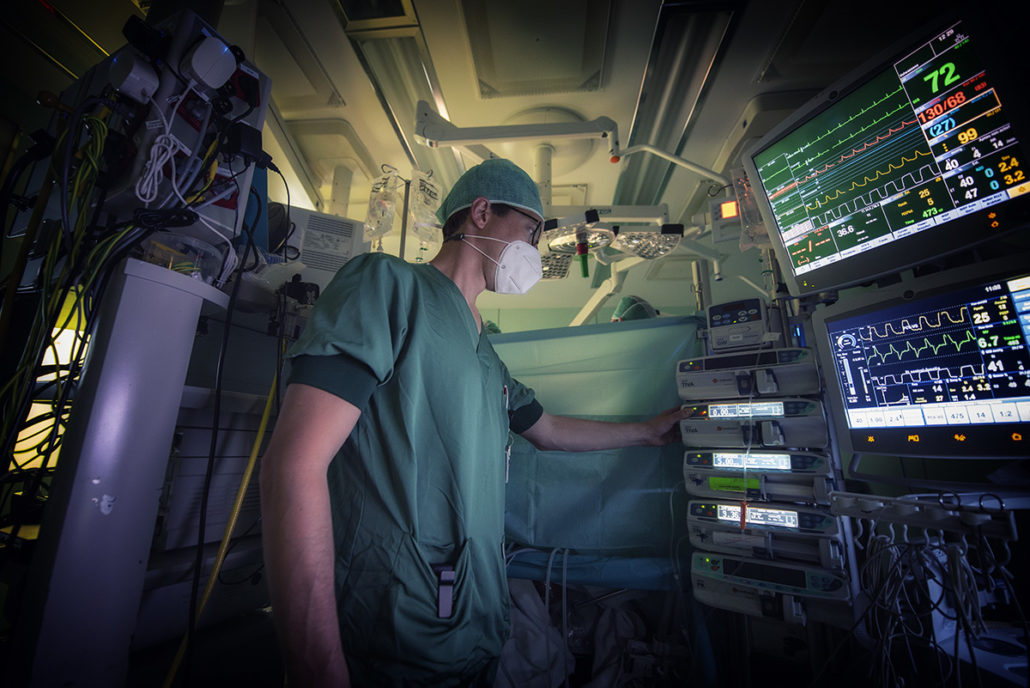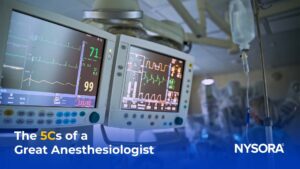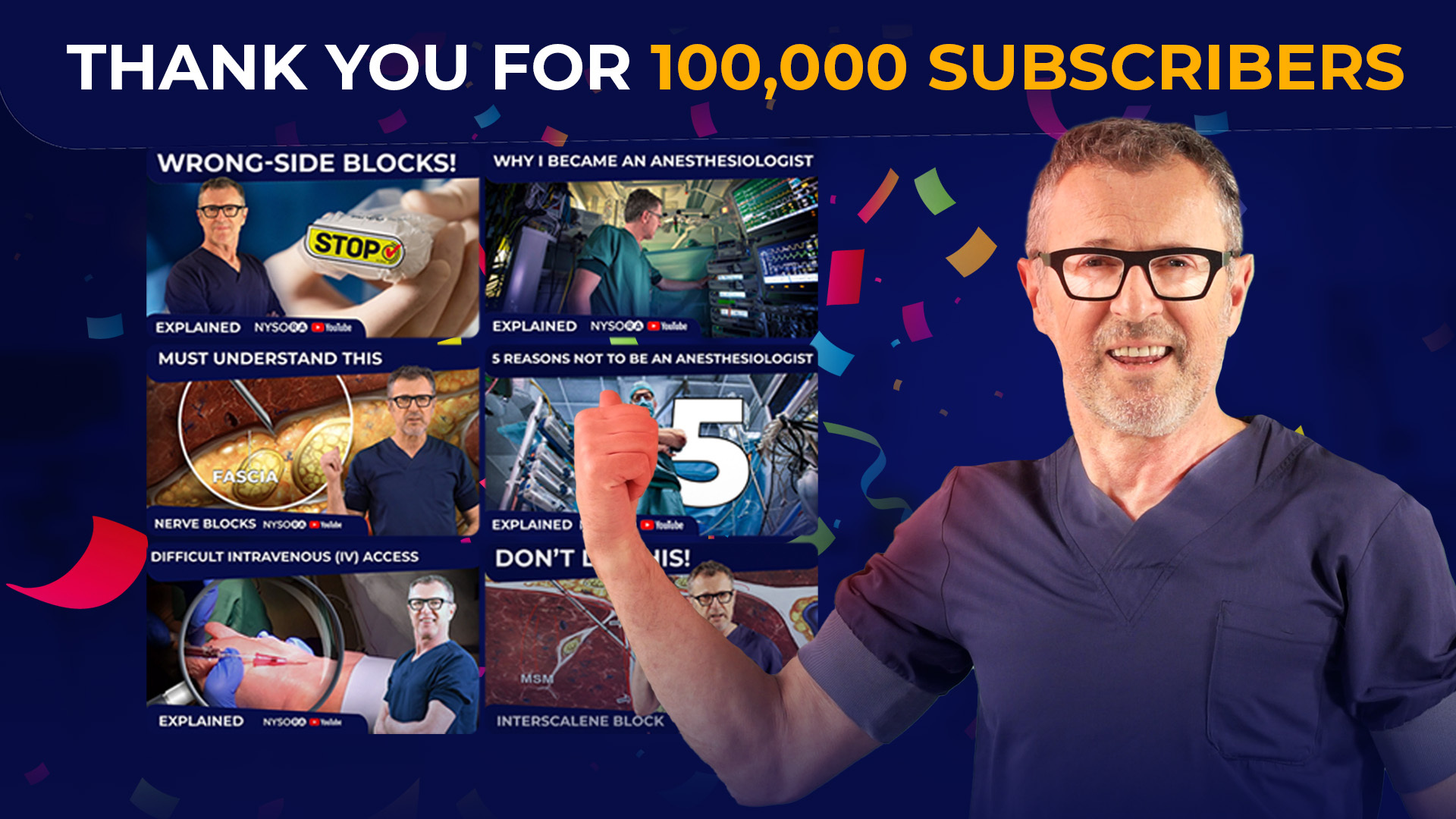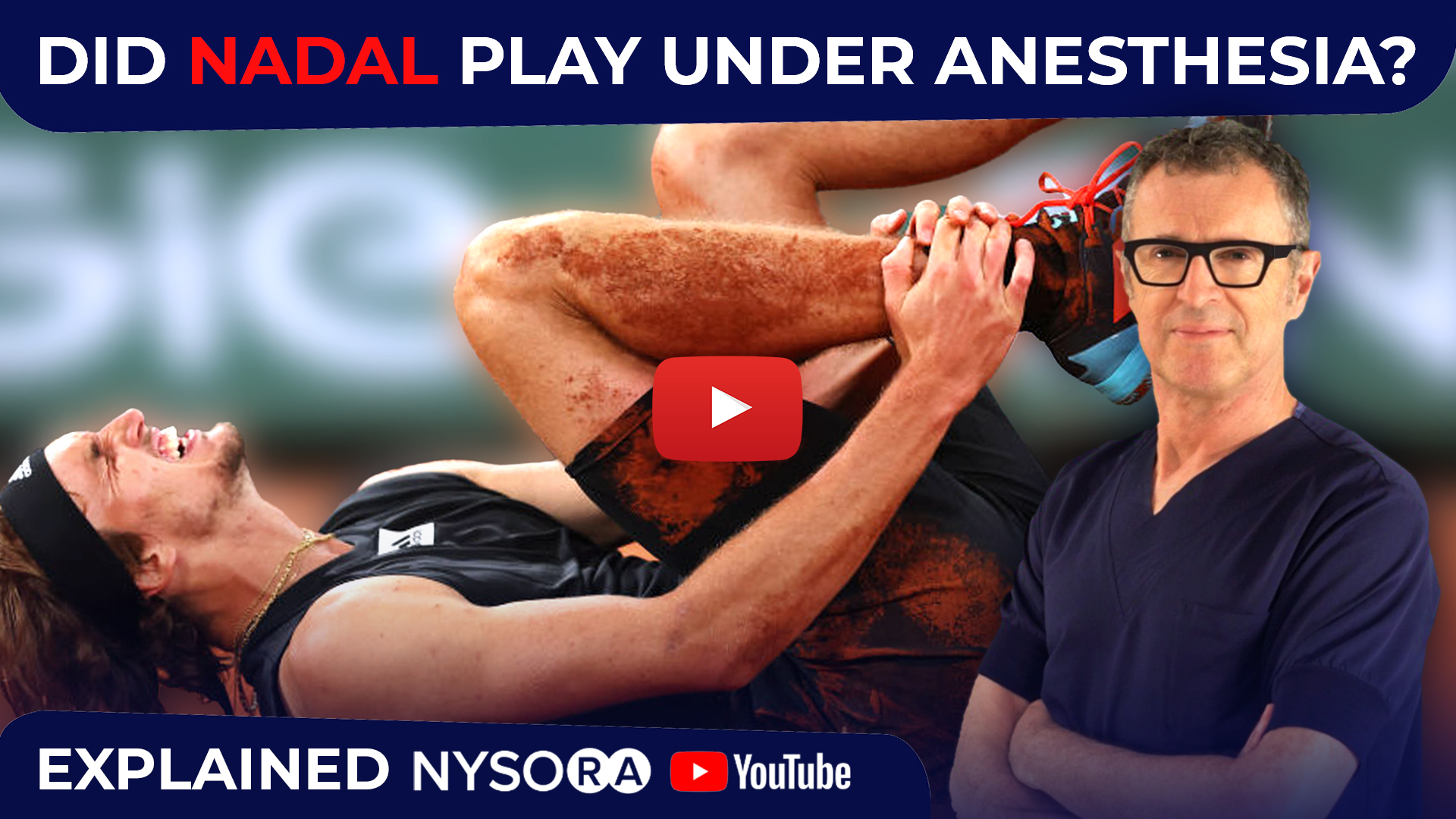The recent youtube video where I described “Why I Became an Anesthesiologist” seemed to resonate deeply with so many colleagues, anesthesiologists, surgeons, and even some patients! I was grateful and touched by the personal messages and feedback I received, and the overwhelming reminder of how much our vital role as anesthesiologists contributes to healthcare. We may be the unsung heroes, but we are indeed like a pack of wolves! Ready and prepared for any crisis that comes our way!
With our ability to remain calm under pressure, stay in command of our skills, and keep a cool head when the crisis hits the fan, we can take enormous pride and satisfaction in knowing that we save lives in extremely stressful situations. Our ability to make decisions, often in seconds, and to execute critical procedures, with pinpoint accuracy, in the heat of the moment, often means the difference between life and death.
Having said that, anesthesiology is not for everyone.
When medical students ask me whether they should consider anesthesiology as a career, I always tell them that anesthesiology is not a specialty to be chosen lightly. It is critical to choose a specialty that suits your personality, and, in the case of the anesthesiologist, there are also specific physical traits required.
The following is a list of the five traits you must possess to be an anesthesiologist: (if you don’t possess all five, it’s a strong indicator that you should NOT become an anesthesiologist!)
- A cool head. You must be able to remain calm during a crisis.
- The ability to multitask; with so many diverse processes happening simultaneously, you must be aware of and keep on top of them.
- A steady hand; strong hand-to-eye coordination, manual dexterity, and procedural skills, that are so well-practiced that they can be called upon at will, even under extreme pressure.
- Good people skills. You have to establish trust quickly and instill confidence in the patient you are just about to anesthetize before their surgery.
- Strong leadership skills; the ability to direct everyone in the operating room whenever crisis strikes.
Furthermore, it’s not enough to possess four out of five of these traits; all five are required to be an anesthesiologist, a true lifesaver.
Without our skills and critical perioperative decision-making as anesthesiologists, the entire surgical program would halt abruptly. Other branches of medicine require different traits or attributes, and that’s fine. For example, in internal medicine, you can prescribe a treatment or a pill and assess its efficacy a week later. There is time to sit back, reflect, and weigh up the options. However, in anesthesiology it’s immediate: problems must be solved now; the patient’s life depends on it! That’s a huge responsibility, but if you can live with it, anesthesiology is one of the most rewarding occupations. I know; it’s almost addictive!
If, like many of my friends, you are still unsure what anesthesiologists actually do, then here’s a picture that helps demonstrate the complexity. It’s a photo I took of a colleague at ZOL NYSORA, Europe, attending to a patient.

As you can see, he is surrounded by a maze of electronics, cables, monitoring systems, infusion pumps (filled with potent medications!), cardiovascular monitoring, etc. That degree of complexity and bewildering amount of apparatus is why giving anesthesia has been compared to flying a plane!
It’s a valid analogy as the induction of and emergence from anesthesia is like taking off and landing a plane, and to be an anesthesiologist, just as in flying a plane, you have to be able to keep your cool and perform competently under stress.
Not only are you required to remain calm and collected so that you can draw upon all the required knowledge of physiology, pharmacology, internal medicine, critical care, mechanical ventilation, airway management, etc., but you also have to multitask and synthesize all the proper decisions on the spot without any delay, while maintaining your composure and directing the entire operating room team.
When I was a resident in anesthesiology, one of my mentors in New York City, Dr Enio Galozzi, used to say:
“Admir, a good surgeon deserves a good anesthesiologist, but a bad surgeon NEEDS one!”
Knowledge alone is not enough to be a competent anesthesiologist. You must be skilled with your hands and be able to perform invasive procedures deftly, particularly under stress in critical situations where your ability to establish an airway or gain access to the circulation is a matter of life and death.
When medical students ask me whether I would recommend they become anesthesiologists, I tell them that it depends on their manual dexterity and whether they can stay cool and focused when multitasking under pressure. Your response to that question will determine whether anesthesiology would be a dream job that keeps you on your toes every day at work; a passion – or a complete nightmare! If you don’t have a high tolerance for stress and you don’t have the resilience to bounce back quickly, you will not be able to handle the pressure.
Fortunately, I have always had a high level of manual dexterity. My father was a craftsman, a toolmaker, and I spent many hours as a child hanging out in his workshop. So, working with my hands has always come naturally to me, and I am not fazed by procedures that involve manual competence, even while working under pressure. Such circumstances will test your manual dexterity and whether you possess the steely nerve and the steady hand required to work with an IV line, arterial line, central line, epidural anesthesia, or nerve blocks when the heat is on.
That’s when you discover that knowledge and theory are insufficient; your manual skills will be tested. You can never foresee what challenges the next case might bring.
Imagine yourself in an environment like my colleague in the picture above, where every decision you make and every button you touch affects another human being; a human being who has put their life into your hands and is now 100% dependent on the decisions that you make.
That said, however, even if you possess all of the above, don’t go into anesthesiology if you are seeking applause or the limelight.
Surgeons usually get the most credit, and I would say deservedly so, as their care and surgical interventions are what the patient came into the hospital. The patients didn’t come to the hospital to receive anesthesia. So, you have to accept that you will live in the shadows of medical care.
I liken it to the American documentary film ” Standing in the Shadows of Motown” which tells the story of the Funk Brothers, the incredibly talented and creative studio musicians, without whom the incredible repertoire of the Motown solo artists, such as Michael Jackson, Stevie Wonder, Marvin Gaye, Smokey Robinson, and Diana Ross, might never have impacted the world. For that amazing music to happen, you require the leadership and incredibly tight rhythm section to exude positive energy.
This is what anesthesiologists do in the operating room. Wherever in the world I have worked as an anesthesiologist, I have made it my aim to create an excellent relationship with the surgeons from the outset. I do this by introducing myself candidly: I tell them that I play bass in the rhythm section in an American Blues band. As a bass player, I have played alongside some great musicians and soloists, such as the New York Hall of Fame star Hugh Poole, and that’s exactly what I do in the operating room. As an anesthesiologist, I head up the rhythm section; that is, I provide an accurate, safe, and productive background, leaving the surgeons free to operate solo and focus their attention on the surgical procedure as much as they need to resolve the patient’s pressing problem that required the surgical interaction in the first place.
Establishing that understanding and relationship with your surgeons and surgical colleagues creates positive energy in the entire operating room to the ultimate benefit of the patient.
So, if you have got what it takes to be an anesthesiologist – the leadership and people skills, the manual dexterity, the ability to multitask, the courage to assume command and take responsibility – and you are happy to remain in the shadows and let others stand in the spotlight, there is one other quality which, if you have it, will contribute greatly to your success as an anesthesiologist.
That quality is resilience. As I mentioned before, the work of an anesthesiologist, like the work of an airline pilot, means that you will be faced with stressful situations daily. You function at full throttle when you work, so to recover and bounce back, you have to be able to switch off completely in your downtime to mentally and physically recuperate.
If you are resilient, you can accomplish so many things, even beyond medicine. I have been able to lead a parallel life as a doctor, academician, musician, educator, and even found the time to develop and produce my range of Belgian beers!
I love my occupation as an anesthesiologist so much that my passion for my work extends to my craft beers, which I have named after medical terms related to anesthesia! So far, the range includes Nerve Block, Painkiller SuperPills, Pacemaker and Placebo.

That is why I became an anesthesiologist; the passion for what I do extends to the passion for my downtime.
If you are thinking about a career in anesthesiology, I hope this article has helped you understand whether this exciting specialty is for you. If you already practice anesthesiology and you share my passion, I would love to hear your thoughts, and your recommendations to any medical students considering anesthesiology as a specialty.







